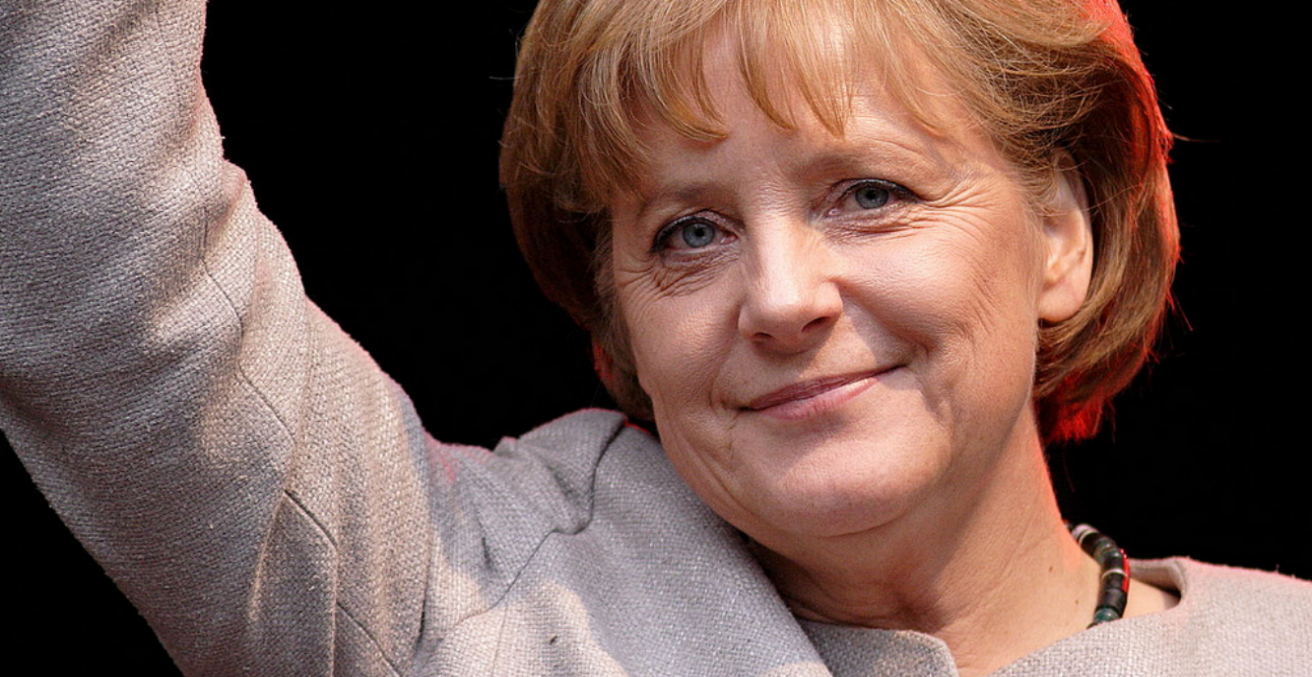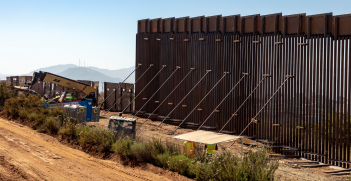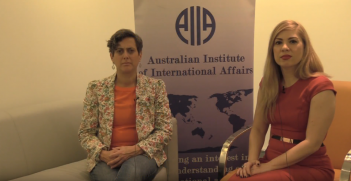The End of the Merkel Era and Its Implications for Global Politics

Despite Angela Merkel’s announcement, Germany’s role in international politics is unlikely to change dramatically.
Chancellor Angela Merkel’s decision to step down as the leader of the Christian Democratic Union of Germany (CDU) and not to run for office after the end of her term in 2021 has been met with both concern and jubilation. While French President Emmanuel Macron is worried about the rise of the populist Alternative for Germany (AfD), Italian Interior Minister Matteo Salvini sees Merkel’s slow exit as a victory for nationalist voices.
What are the implications for international politics? Will Germany’s position in the EU change? Will it shift on core issues such as migration control? Will it pursue a more self-interested policy and care less about multilateralism?
The immediate answer is that it all depends on who succeeds Merkel as party leader. Some of the candidates, such as the current favourite and Party Secretary Annegret Kramp-Karrenbauer or Armin Laschet, Prime Minister of the most populous German state of Northrhine-Westphalia, are very close to Merkel, both personally and in policy. Others such as Federal Minister of Health Jens Spahn and financial expert Friedrich Merz – both old rivals of Merkel – follow a more conservative line. Personality matters, not least in the ever-more complicated business of forging coalitions, which in turn have an impact on foreign policy preferences as much as diplomatic style.
Change, What Change?
My bet is that Germany’s role in international politics is unlikely to change much, for three reasons.
First, while there are differences on issues such as migration control or a further integration of financial policies on the European level, the German political scene is still characterised by a remarkable consensus on foreign policy. That consensus may have shifted over time towards emphasising the national interest more openly, but it still focuses on multilateral engagement and European partnership.
Second, the rise of the right-wing populist AfD is no doubt deplorable and a challenge to German democracy. However, it is only part of the greater picture. The regional elections in Bavaria and Hesse that precipitated Merkel’s decision were characterised by massive electoral gains of both the AfD and the Green Party. What is more, electoral analyses have demonstrated that the Christian Democrats and their Bavarian sister party, the Christian Social Party, lost voters equally in both directions. The Greens have been highly supportive of Merkel and her multilateral inclinations. Meanwhile, the electoral base of the AfD in the whole of Germany seems to be well below 20 per cent. Following the latest national surveys, the most likely coalition is between the CDU and Greens. This is not a coalition of which one would expect a major foreign policy reorientation.
Third, Merkel has become a beacon of rationalism, pragmatism and common sense in a world increasingly characterised by the erratic behaviour of populist men in their attempt to overthrow diplomatic practices and institutions that have grown over decades. Even though they disagree on some issues of substance, especially in economic policy, Merkel shares with Macron a diplomatic style that is focused on solving problems and sceptical of extremism. For a long time, the Chancellor’s aversion to conflict led to ridicule. Will she now be missed as a builder of bridges and compromise?
Here, the answer is more difficult. To start with, Merkel will remain Chancellor until 2021, unless further events force her out. Thus, for the time being she will still be a presence on the diplomatic scene. In addition, none of her potential successors is known to be an iconoclast when it comes to diplomatic conventions. None of them is likely to turn out as a second Boris Johnson or Donald Trump. In addition, foreign policy is made in many different places and by many people, and the succession of German foreign ministers up to Heiko Maas, the present incumbent, is a showcase of continuity.
What makes this issue more complex is the standing that Merkel or any of her successors may have in international forums under present circumstances. On the one hand, no longer having full support at home may weaken Merkel’s position abroad, and electoral strategising is likely to increase the tensions in Merkel’s current coalition government, especially if one of her declared rivals rather than her close allies succeeds her as party chair. On the other hand, Merkel would not be the first state leader who thrives in their international role when the going gets tough back home. So the pendulum may swing either way and the outcome will depend on Merkel and her successor, as well as the way that other states’ leaders interact with them.
In the meantime, the European elections in May 2019 are a much greater cause for concern than Merkel’s departure, and it may well be that they have played a role in her decision to hang on to the Chancellorship. Turnout in these elections has been notoriously low in the past, which works to the benefit of fringe parties. Presumably, AfD voters have a much greater incentive to get out and vote in May than CDU – or for that matter Social Democrat – voters who aren’t entirely happy with their party anyway. This, though, would be a double whammy: it would further destabilise the German government, expediting Merkel’s exit, and it would contribute to a significant change in the EU legislature with unforeseeable consequences for EU policy-making. The worries of many and the hopes of some therefore should not be about the end of the Merkel Era; they ought to be about the unforeseen consequences of not taking the European elections seriously enough.
Thomas Diez is Professor of Political Science and International Relations at the University of Tübingen.
This article is published under a Creative Commons Licence and may be republished with attribution.





